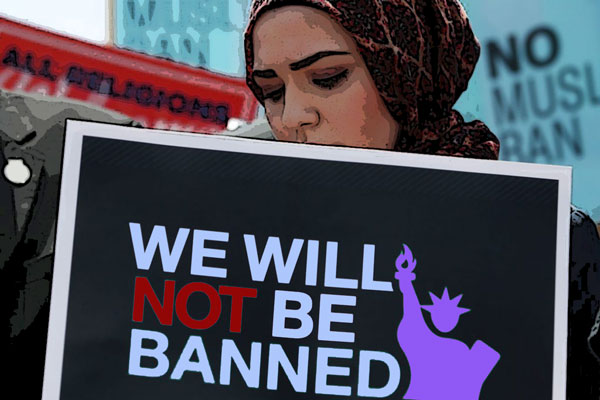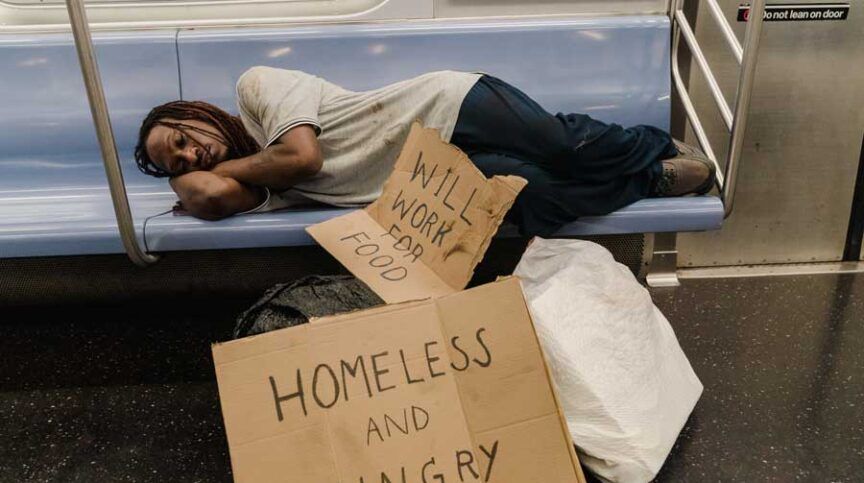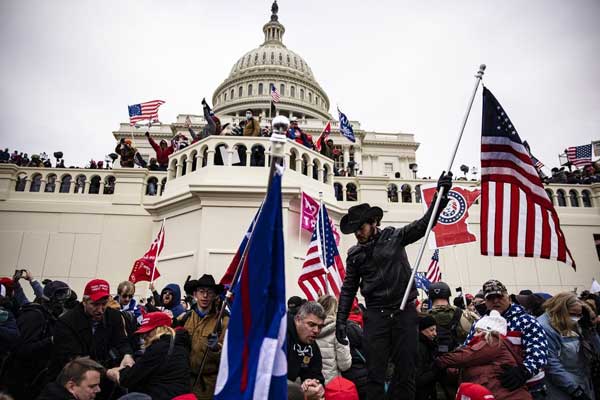When Donald Trump announced his intention to have a “Muslim Ban,” stating that early on as a presidential candidate, many were unsure of its effects and what it meant for the future of American Muslims. President Trump signed an executive order on January 27th, 2017 that banned foreign nationals from seven Muslim-majority countries from entering the United States. Protests took place and lawsuits immediately initiated in the attempt to repeal the order. However, four years on, as Trump prepares to leave office, the effects of his anti-Muslim policies and rhetoric on American Muslims have largely been ignored. In fact, however, Trump’s tenure has seen a dramatic decline in Muslim refugees, as well as a rise in hate crimes against Muslim citizens.
According to a CATO Institute report, after the United States welcomed a record 38,555 Muslim refugees in the fiscal year of 2016, that number was cut to a mere 3,321 in the fiscal year 2018 — a 91 percent decrease. The Pew Research Center also found that Christians comprised 79 percent of refugees in 2019, despite Muslims outnumbering Christian refugees just three years earlier. Trump’s Muslim Ban has had a devastating effect on Muslims who seek to escape war, poverty, and/or hunger, especially in countries such as Yemen, Syria, and Iraq. Syrian refugees who would have sought to escape the chaotic civil war that left their country in ruins had their hopes diminished when Trump’s executive order suspended Syrian refugee immigration indefinitely. That is despite the fact that in 2017, a Pew survey found that almost half of Americans believed that the United States had a responsibility to accept refugees from Syria. This is likely due to America’s long-term involvement in the war that has devastated the Middle Eastern nation. Yemeni refugees were also blocked by the initial executive order; and despite the United Nations warning that Yemen has become the largest humanitarian catastrophe in the world, Trump saw fit to forbid the entry of the three million displaced persons from Yemen. The United States also has a significant hand in the Yemen war, providing a multitude of arms to Saudi Arabia, one of the main players in the war, under the 2017 United States-Saudi Arabia arms deal.
Ongoing Negative Effects of the Muslim Ban
Trump’s insistence on a Muslim ban may end up hurting the United States economically. Studies have shown that over time, refugees have high labor force participation rates and rely less on social welfare programs. Therefore, most refugees represent a net positive to the U.S economy in the long run. A 2017 New York Times report detailed that the Trump administration rejected a report which found that refugees generated over $60 billion to the U.S economy over a decade, a glaring detail that was overlooked or ignored when Trump imposed the travel ban.
Trump’s travel ban has likely also had a hand in decreasing international student enrollment in the United States. According to a recent U.S. News & World report, 2019 was the first year that international student enrollment into American universities dropped, with many students citing the U.S political climate as an area of concern when considering the U.S. for studies. Moreover, the U.S Department of Commerce stated that international students contributed $45 billion and nearly half a million jobs to the U.S economy in 2018; losing these students will undoubtedly deprive the U.S of an important source innovation and expertise in STEM (science, technology, engineering, and mathematics) in the years to come.
It is evident that Trump has largely fulfilled his promise to halt Muslim immigration to the United States. However, this may have caused increased resentment toward Muslims in America and there is little evidence that it has made America much safer. A Pew Research survey conducted in 2017 found that 75 percent of Muslims believed that there was a lot of anti-Muslim discrimination, and half of all Muslims expressed that it has become harder to be Muslim in America in recent years. It also seems that the 68 percent of U.S Muslims who claimed that Trump “worried them” may have been justified considering an uptick in hate crimes against Muslims since Trump took office. A study published by the Council on American-Islamic Relations (CAIR) documented 300 cases of hate crimes against Muslims in 2017, a 15 percent increase from 2016, a year which also saw an increase in hate crimes. CAIR stated that this increase was at least partly a result of Trump’s policies and inflammatory rhetoric regarding Muslims.
A Powerful Lesson for American Muslims
In light of the undeniable correlation between Trump’s Muslim ban and public attitudes toward Muslims, we have a responsibility to debunk all stereotypes about Muslims and fabrications about Islam. In order to achieve this objective, Muslims must be good ambassadors of Islam and let their character speak louder than the words of anti-Muslim politicians and ordinary hatemongers. In the early years of Islam, the Prophet was relentlessly tormented by disbelievers in every manner possible. There is a well-known story of a woman who used to throw garbage at the Prophet as he walked by her house to go for prayer every day. One day she did not appear. He inquired about her and was told she was sick and so he visited her. He extended to her many kindnesses to help her recover her health. She then accepted the truth of Islam (while this story is not found in the authentic hadith, it is repeated in many biographies of the Prophet; while its authenticity cannot be verified, its message of the Prophet’s patience, tolerance, and kindness even toward those who hated him, and acted upon that hatred, is verified by a multitude of reliable accounts in the life of the Prophet).
A similar lesson is found in the contemporary true story of Richard McKinney, an American veteran returning from the Middle East. He planned to bomb a mosque in Indiana due to his hatred of Muslims. However, after receiving a warm welcome to the mosque he had planned to bomb, Mr. McKinney instead took home a Quran and eight weeks later he converted to Islam. He later became president of the that same Islamic Center.
These two examples contain a powerful lesson for American Muslims — we need to show others the true nature of Islam. Non-Muslims do not go to mosques, they do not read the Quran, and many of them do not know anything about Islam beyond what they hear on the news. The only exposure to Islam is through Muslims in America, through the agency of Islamic personality and character. It is, therefore, imperative to be a good ambassador of Islam so as to change any negative perceptions that people may have about Islam and Muslims. In today’s tumultuous political climate, in order to combat hate-mongering sentiments and Islamophobic policies, Muslims must be distinguished exemplars of Islam and its teachings, and that starts with purifying the heart and doing good deeds. The Prophet, peace be upon him, said, “Verily, Allah does not look at your appearance or wealth, but rather he looks at your hearts and actions” (Sahih Muslim).





